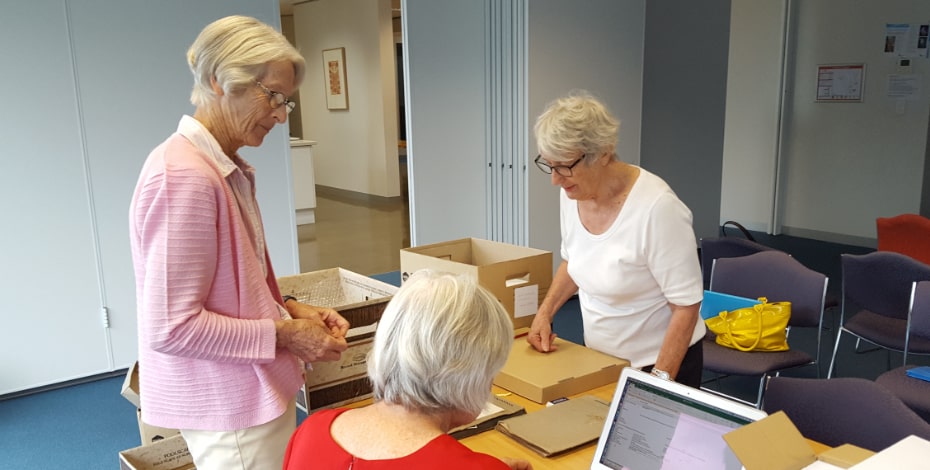
At the heart of it, we look back to go forward

Late last year, I had the pleasure of meeting the APA Retired Members Group. This group of longstanding members have dedicated the last few years to the preservation of our profession’s history.
Among them are people who have shaped the profession and been involved with seminal moments in its history, including the attainment of first-contact rights in 1976, and the appointment of the first physiotherapist president of the APA.
But here they are, most of them in their 70s and beyond, spending time in dusty storage units, sorting through papers, photos and artefacts that chronicle our history such as photos of war-time physiotherapists tending to the wounded, and the recorded oral histories of trailblazers.
Such treasures deserve to be kept in places of reverence, and I am pleased to say the group will be contacting both the State Library of Victoria and the Shrine of Remembrance to discuss the archiving and custodianship of these items.
Why does it matter? What is the use of looking back? Mostly, it is to understand how to go forward. Being conscious of the past, being grateful for the contributions of those who came before us, inspires us today to do something worthwhile.
In this new decade, advances in healthcare and the use of technologies can and will change physiotherapy practice. Looking back teaches us that, although the landscape is different, progress is built on the same tenets—perseverance, innovation and courage.
How will we, as a profession, tackle the problems of tomorrow? Futurists predict that the global population will reach the 10 million mark in the next 30 years. If global health systems are to cope with the pressure, they will need to focus more on prevention (or pre- hab) than on treatment of existing conditions.
They will also need to make good use of technology. Artificial intelligence will play an integral role in our professional lives. In fact, it may well be that your future business partner is not a human being at all, and that many aspects of your role will be automated.
Such thoughts and the notion that we are rendering human beings redundant naturally make us nervous. But while technology might perform certain tasks as well, if not better, than we do, there are things that remain the domain of human beings: empathy, care and compassion—in other words, heart.
And it is with plenty of heart that our Retired Members Group continues to contribute to our profession, not because they will personally benefit much from such endeavours, but because of their desire to give back. They remind us that what will help us stride confidently into the 2020s is not dissimilar to that which helped us ride out the inter-war 1920s.
So, as this decade begins, I hope to see the profession embody togetherness, generosity and courage. And most of all, heart.
© Copyright 2024 by Australian Physiotherapy Association. All rights reserved.





